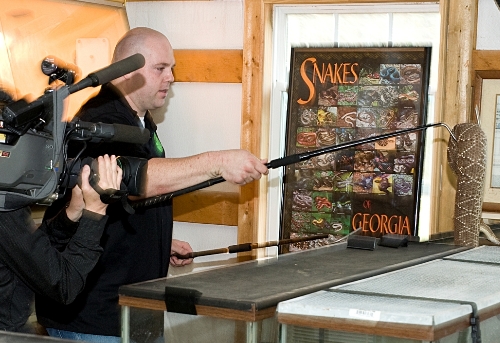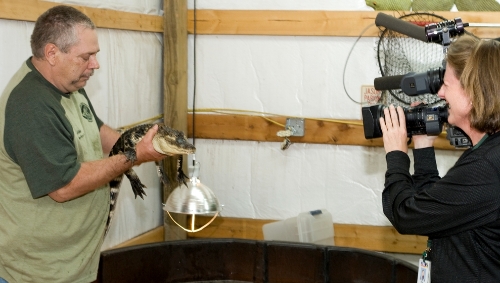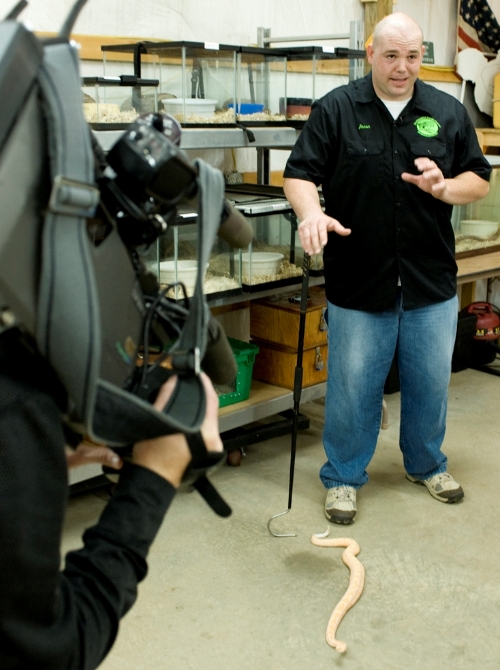Join us on Channel 2 Action News WSB in Atlanta Monday April 28th at 5:00pm. My love for snakes started when I was a kid. Though I didn't know much about them, I was fascinated! As I got older and more knowledgeable, I talked my parents into letting me have a pet snake. I started with a garter snake and a black rat snake. Later, I ended up with a couple of boa constrictors that were given to me by a couple who grew bored with them. That passion for snakes that I had as a kid has turned into what is now Southeastern Reptile Rescue. After several years of dealing with nuisance, unwanted and/or neglected reptiles I've come to realize how many people have snakes that probably shouldn't. The majority of people that I encounter, keep their animals as they should and have proper husbandry techniques. But, there is a small minority of reptile enthusiasts out there that give other reptile owners very bad reputations. Private reptile owners who do not deal with the public on a regular basis in regards to snakes and snake rescue may find it hard to understand why someone would want to ban certain reptiles. I know I did. But, after finding red tail boas in parking lots, reticulated pythons in barns, ball pythons in flower gardens, Burmese pythons crossing the road and four foot monitor lizards under storage sheds, I see where the reptile hating world is coming from. I definitely condone private ownership. I want kids just like I was to be able to have a pet snake or lizard. This is one reason I do hundreds of hours each year of public education about reptiles. The problem with private ownership of reptiles in |
|
The Yellow Anaconda (Pictured Below) is legal to own in Georgia. This only becomes a problem when irresponsible individuals acquire these snakes and let them escape or do not know how to properly handle them and receive injury from it. It is unlikely that this snake, if released, could survive a Georgia winter. What may be more detrimental than its survival in the wild is the potential to spread parasites and disease to the native reptiles of Georgia which in turn may not be able to survive themselves. This particular anaconda was born and raised in captivity which greately reduces the risk of spreading any disease or parasite.
This Gaboon Viper (Pictured Above) was captured in Africa and then legally shipped to the U.S. The Gaboon viper boasts ownership of the largest fangs in the world, up to two inches long. It can also inject more venom with one bite than any other venomous snake. Fortunately it is an extreemely docile snake that rarely bites. This however, can in itself be dangerous because a snake handler is much more likely to let down his or her guard and get too close. If you get within this snakes strike range, you will not have time to consider moving if it decides to bite! Unlike many other snakes, the gaboon viper can strike in ANY direction, even backwards over its tail. Couple this with a nearly 100% strike range and you'd better stay back.
|



























